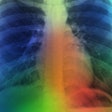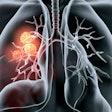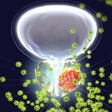Dear LabPulse.com member,
Developments related to the monkeypox virus rose to prominence with pandemic news in our coverage of infectious disease testing this past week.
As the World Health Organization (WHO) plans an emergency meeting to decide whether to declare the global monkeypox outbreak a public health threat, it reported this week that the number of cases has surged to 9,200 in 63 countries since May. According to the U.S. Centers for Disease Control and Prevention (CDC), laboratories had detected 926 cases in America during that timeframe by mid-day on Tuesday.
In parallel with the reporting of case growth, three prominent U.S. laboratory firms -- Quest Diagnostics, Labcorp, and Mayo Clinic -- announced that they began testing for the virus this past week.
We've known for some time that the ability to test for the monkeypox virus is not a concern. The virus is a relative of the smallpox virus that is weaker in severity and transmission than smallpox, and the detection of viral DNA by PCR is the preferred laboratory test.
According to the WHO, the best diagnostic specimens are directly from the rash -- skin, fluid, or crusts, or biopsy where feasible. Antigen and antibody detection methods may not be useful as they do not distinguish between orthopoxviruses.
In the U.S., molecular testing has been available since May at the CDC; last Wednesday, Labcorp announced it began testing for monkeypox using the CDC's orthopoxvirus assay, which detects all non-smallpox related orthopoxviruses, including monkeypox. Labcorp anticipates building to a capacity of up to 10,000 tests per week, a doubling of the capacity provided through the CDC's Laboratory Response Network.
On Monday, Mayo Clinic Laboratories announced that it was starting testing for monkeypox using the CDC's test kit. According to the agency, Mayo Clinic expects to be able to perform up to 10,000 tests per week.
On Wednesday, Quest Diagnostics announced the availability of its own lab-developed molecular diagnostic test to aid in the diagnosis of infection with the monkeypox virus. The firm said it will be able to perform approximately 30,000 tests a week by the end of July, and it has plans to launch the CDC's orthopoxvirus test in the first half of August.
A number of diagnostic test suppliers, meanwhile, had previously announced plans to develop monkeypox tests, including Cepheid and BioGX, Eurofins Technologies, CerTest Biotec and Becton Dickinson, and Roche Diagnostics.
More on global health threats
With one eye on the monkeypox virus, the testing community continued this week to report developments related to the COVID-19 pandemic.
Quest Diagnostics said last Thursday that demand for its COVID-19 molecular diagnostic testing generally plateaued in June after rising in May.
Meanwhile, in time for the Northern Hemisphere's respiratory viral season, Hologic announced on Monday that it is offering its Panther Fusion SARS-CoV-2/Flu A/B/RSV assay and its Novodiag Resp-4 molecular diagnostic test for sale in the European Union.
We also reported on work by researchers at Imperial College London in the U.K. who recently developed an artificial intelligence (AI) algorithm that can take much of the guesswork out of analyzing our home-use lateral flow immunoassays, and on the filing of new counterclaims by GS Labs, which is in a legal battle over COVID-19 rapid tests with insurer Blue Cross Blue Shield (BCBS) of Minnesota.



















